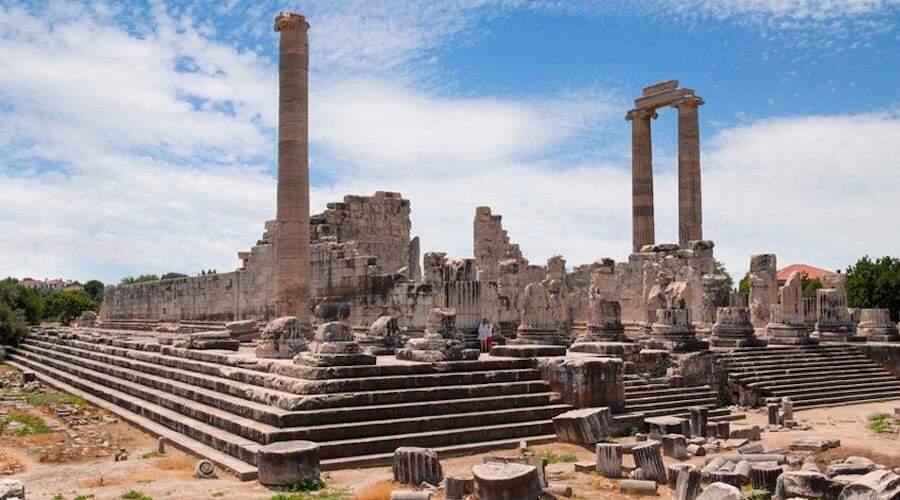Ancient Corinth was inhabited from the Neolithic Age (5000-3000 BCE) and took part in the Trojan War in the 12th century BCE. It was here that, from the 7th to the 4th centuries BCE, the famous triremes, the warship that enabled Greece to dominate the seas, were built. Corinth was known for the wealth of its inhabitants and their rather loose morals. In 146 BC, Corinth was captured and was completely destroyed by the Roman army. As a newly rebuilt Roman colony in 44 BC, Corinth flourished and became the administrative capital of the Roman province of Achaea. In 1858, the old city, now known as Ancient Corinth, located three kilometers southwest of the modern city, was totally destroyed by a magnitude 6.5 earthquake. New Corinth (Nea Korinthos) was then built to the north-east of it, on the coast of the Gulf of Corinth. In 1928, a magnitude 6.3 earthquake devastated the new city, which was then rebuilt on the same site. In 1933, there was a great fire, and the new city was rebuilt again.
Gastronomy
The daily traditional cuisine of the area brings together an incredibly wide variety of recipes, the taste, structure and body of which being characterised by the use of olive oil. Vineyards and olive groves, orchards and sheepfolds give their treasures to the region’s acclaimed cuisine.
The wild boar with quince, cod plaki with Corinthian raisin, karkassopita (a pita made with eggs and barrel-aged feta, where they make the dough with the cheese’s brine instead of water), prasopita (leek pita) with raisins and kefalotiri cheese, rooster with homemade hilopites pasta, gigantes (giant beans) in the oven, soups, bean soup, revithatha, vetouli (a kid older than one year but less than two, and which has not given birth) in the pot, boiled vergadi (kid older than two years year), zygouri (lamb up to one year old), thick-cut charcoal-grilled ribs, pork salmi (like yiahni, but without onions, and always made with oil, never butter), karydopita and baklava with raisins, spoon sweet, etc.
Cuttlefish cooked in olive oil and tomato, stuffed with rice and flavoured with dill and red wine. You should try horta yiahni wild greens yiahni with spicy “cheese crumb”, a dish of simple folk cuisine with an excellent flavour. The area of Corinth has been famous since antiquity for its delicious wild asparagus, which is cooked as an omelette or prepared yiahni along with other herbs.
One of the most interesting gastronomic combinations is pork salmi, where the meat is simmered with the fragrant red wine of the area and (in the final stage) its rich sauce is thickened with finely-chopped walnuts. As in all traditional Greek cuisine, so here we have a series of pita and dishes based on sweet and on sour trahana: trahanopita, pumpkin pita with trahana and trahanosoupa (trahanas soup).




